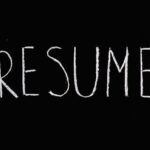Your skills section is a critical component of your resume. It provides employers with a quick glance at what you can bring to the table. Skills for resume can be broadly categorized into two types: hard skills and soft skills.
The Role of Skills in Your Career Path
Skills are the building blocks of your career journey. They not only help you perform tasks efficiently but also enable you to adapt to new roles and industries. By listing the right skills on your resume, you signal to potential employers that you have the what they need.
Differentiating Between Hard and Soft Skills
Understanding the difference between hard and soft skills is crucial. Hard skills refer to specific, teachable abilities that are easy to quantify, such as coding or data analysis. Soft skills, in contrast, are interpersonal attributes that characterize how you interact with others, such as empathy or leadership.
The Balance Between Hard and Soft Skills
A well-rounded resume includes a blend of both hard and soft skills. While hard skills demonstrate your technical prowess, soft skills showcase your ability to thrive in a collaborative work environment. Employers seek candidates who excel in both areas, as it indicates a versatile and adaptable individual.
Top Skills to list on Resume
When considering what skills to include on your resume, it’s important to tailor them to the job you’re applying for. Here are some universally valuable skills for resume examples:
Communication Skills
Effective communication is crucial in any job. This includes verbal and written communication, as well as listening skills. Being able to convey information clearly and concisely is a valuable asset.
Importance of Active Listening
Active listening is a key component of effective communication. It involves not just hearing but understanding and responding thoughtfully to others. This skill is essential for collaboration and problem-solving in the workplace.
Enhancing Written Communication
Strong written communication skills are vital, especially in digital communication. Crafting clear emails, reports, and presentations can set you apart, as it reflects professionalism and attention to detail.
Mastering Non-Verbal Communication
Non-verbal communication, such as body language and eye contact, plays a significant role in interactions. Being aware of and mastering these cues can improve interpersonal relationships and build trust.
Problem-Solving Skills
Employers value candidates who can think critically and find solutions to challenges. Highlight your ability to analyze situations and come up with effective solutions.
Analyzing Complex Problems
The ability to break down complex problems into manageable parts is crucial. This involves identifying the root cause and considering various solutions, leading to more effective decision-making.
Creativity in Problem-Solving
Creativity is often required to find innovative solutions. Thinking outside the box can lead to unique approaches that may not be immediately apparent, giving you an edge in competitive environments.
Decision-Making Under Pressure
Problem-solving often involves making decisions under pressure. Demonstrating your capability to remain calm and make informed choices in high-stress situations is invaluable to employers.
Teamwork and Collaboration
Most jobs require you to work with others. Showcase your ability to work well in a team, contribute to group efforts, and collaborate with colleagues.
Building Strong Team Dynamics
Building strong relationships within a team is vital for success. Understanding team roles, respecting diverse viewpoints, and fostering a supportive environment can enhance collective productivity.
Effective Conflict Resolution
Conflict is inevitable in team settings. The ability to navigate disagreements diplomatically and reach a consensus reflects strong leadership and interpersonal skills.
Leveraging Diverse Skills
A successful team leverages the diverse skills of its members. Recognizing and utilizing the strengths of each team member can lead to innovative solutions and improved outcomes.
Adaptability and Flexibility
In today’s fast-paced work environment, being adaptable to change is essential. Employers look for candidates who can handle unexpected situations and adjust to new tasks easily.
Thriving in Changing Environments
Adaptability involves thriving in dynamic work environments. Being open to change and willing to learn new skills ensures you remain valuable, even as industries evolve.
Managing Stress and Uncertainty
Adaptability also requires managing stress and uncertainty. Developing resilience and maintaining a positive attitude in the face of challenges can significantly impact your performance and well-being.
Embracing New Opportunities
Embracing change often leads to new opportunities. Being proactive and open to taking on new roles or responsibilities can accelerate career growth and personal development.
Leadership Skills
Even if you’re not applying for a management position, leadership skills are highly valued. This includes the ability to motivate others, take initiative, and guide a team towards achieving goals.
Inspiring and Motivating Others
Effective leaders inspire and motivate their peers. Demonstrating enthusiasm and commitment can encourage others to reach their full potential and contribute positively to the organization.
Leading by Example
Leading by example is a powerful leadership trait. Displaying integrity, accountability, and a strong work ethic sets a standard for others to follow, fostering a culture of excellence.
Strategic Vision and Goal Setting
Strong leaders possess strategic vision. Setting clear goals and aligning them with the organization’s objectives ensures that efforts are focused and outcomes are maximized.
Technical Skills
Depending on the job, technical skills can be crucial. These might include proficiency with software applications, understanding of industry-specific tools, or expertise in data analysis.
Staying Current with Technology
Technology evolves rapidly, making continuous learning essential. Staying abreast of the latest tools and trends ensures you remain competitive and capable of leveraging new technologies effectively.
Industry-Specific Tools and Software
Proficiency in industry-specific tools can set you apart. Demonstrating expertise in relevant software or tools highlights your ability to contribute immediately to a prospective employer.
Data Analysis and Interpretation
Data-driven decision-making is increasingly important. Showcasing your ability to analyze and interpret data underscores your analytical skills and ability to derive actionable insights.
Organizational Skills
Being organized can improve efficiency and productivity. Highlight your ability to manage time, prioritize tasks, and maintain order in your work.
Time Management Techniques
Effective time management is a cornerstone of organizational skills. Using techniques such as prioritization and scheduling can significantly enhance productivity and reduce stress.
Efficient Task Prioritization
Prioritizing tasks ensures that critical objectives are met on time. Demonstrating your ability to distinguish between urgent and important tasks can improve your efficiency and effectiveness.
Creating and Maintaining Order
Maintaining an orderly work environment reflects professionalism. Organization involves not only physical spaces but also digital files and processes, contributing to streamlined operations.
Customer Service Skills
For roles involving customer interaction, emphasize your ability to provide excellent service, address concerns, and maintain positive relationships.
Understanding Customer Needs
Understanding and anticipating customer needs is key to providing exceptional service. Demonstrating empathy and active listening can enhance customer satisfaction and loyalty.
Managing Customer Feedback
Handling customer feedback constructively is crucial. Showcasing your ability to address concerns and implement improvements highlights your commitment to continuous improvement.
Building Long-Term Relationships
Building long-term customer relationships is beneficial for any business. Demonstrating your ability to establish trust and foster loyalty can contribute to sustained business growth.
How to List Skills on Your Resume
When listing skills on your resume, it’s important to present them in a way that’s clear and easy to read. Here are some tips:
Use Bullet Points
Organize your skills using bullet points to make them easy to skim. This format is reader-friendly and helps your skills stand out.
Clarity and Conciseness
Bullet points promote clarity and conciseness. Keeping your skill descriptions brief ensures that hiring managers can quickly identify your key competencies.
Visual Appeal
The visual appeal of bullet points enhances readability. A well-organized skills section can make your resume more inviting and increase the likelihood of it being read thoroughly.
Prioritizing Skills
Order your skills strategically, placing the most relevant or impressive at the top. This ensures that your strongest skills catch the employer’s attention first.
Include Relevant Keywords
Incorporate keywords from the job description to align your resume with the employer’s needs. This can improve your chances of passing through applicant tracking systems.
Understanding ATS and Keywords
Applicant Tracking Systems (ATS) scan resumes for keywords. Including relevant terms from the job description can increase your chances of making it past the initial screening.
Customizing for Each Application
Tailoring your keywords for each application demonstrates your attention to detail. It shows that you’ve taken the time to understand the role and align your skills accordingly.
Avoiding Overuse of Buzzwords
While including keywords is important, avoid overusing buzzwords. Instead, focus on genuine skills and experiences to present an authentic and credible profile.
Provide Context
Whenever possible, provide context for your skills. Use specific examples or achievements to demonstrate how you’ve applied your skills in past roles.
Quantifiable Achievements
Quantifiable achievements provide concrete evidence of your skills. Numbers and data add credibility and can make your accomplishments more impressive and tangible.
Real-World Examples
Using real-world examples helps employers visualize your skills in action. Providing context shows how your abilities have contributed to previous successes.
Storytelling in Your Resume
Storytelling can make your resume more engaging. Crafting brief narratives around your skills can capture the reader’s attention and make your profile memorable.
Be Honest
While it’s important to highlight your strengths, it’s equally important to be truthful. Misrepresenting your skills can lead to problems later on, especially if they’re tested during an interview.
Integrity and Authenticity
Integrity and authenticity are vital in your resume. Presenting an honest portrayal of your skills reflects your character and builds trust with potential employers.
Addressing Skill Gaps
If you have skill gaps, address them proactively. Highlight your willingness to learn and grow, and consider including relevant coursework or ongoing training.
Long-Term Reputation
Maintaining honesty preserves your long-term professional reputation. A truthful resume ensures that any job you secure is a good match for your actual abilities.
Crafting a Strong Resume Summary
In addition to your skills section, a well-crafted resume summary can make a strong impression. This brief statement at the top of your resume should highlight your key qualifications and career goals. Here’s how to write an effective resume summary:
Keep it Concise
Your summary should be 2-4 sentences long. Focus on your most important skills and achievements that are relevant to the job.
Highlighting Key Achievements
Concentrate on your most significant achievements. Briefly mentioning your top accomplishments in your summary can instantly capture the employer’s interest.
Focusing on Core Competencies
Your summary should emphasize your core competencies. These are the skills that define your professional identity and set you apart from other candidates.
Avoiding Unnecessary Details
Avoid unnecessary details in your summary. It’s meant to be an overview, so keep it focused and avoid cluttering it with extraneous information.
Tailor it to the Job
Customize your resume summary for each job application. Highlight the skills and experiences that are most relevant to the position.
Aligning with the Job Description
Align your summary with the job description. Demonstrating a clear connection between your skills and the role shows that you’ve done your homework.
Showcasing Your Fit for the Role
Use your summary to showcase your fit for the role. Highlight how your unique skills and experiences align with the organization’s needs and goals.
Demonstrating Enthusiasm
Express enthusiasm for the role in your summary. A positive, proactive tone can make a strong impression and demonstrate your eagerness to contribute.
Use Action Words
Start your sentences with action words to convey energy and confidence. Words like “achieved,” “led,” “developed,” and “implemented” are strong choices.
Creating a Dynamic Impression
Action words create a dynamic impression. They convey decisiveness and initiative, qualities that employers value in potential hires.
Emphasizing Results and Impact
Action words emphasize results and impact. They draw attention to your contributions and the positive outcomes you’ve achieved in previous roles.
Building a Compelling Narrative
Using action words helps build a compelling narrative. They make your achievements sound more engaging and highlight your proactive approach to work.
Highlight Your Unique Value
What sets you apart from other candidates? Your resume summary should convey your unique value proposition and what you can bring to the organization.
Identifying Your Unique Selling Points
Identify your unique selling points. These are the aspects of your profile that differentiate you and make you an attractive candidate for the role.
Articulating Your Career Vision
Articulate your career vision in your summary. Employers appreciate candidates with clear goals and a vision that aligns with the organization’s mission.
Demonstrating Your Potential
Your summary should demonstrate your potential for growth. Highlight your readiness to take on new challenges and contribute meaningfully to the company.
Examples of Skills and Resume Summaries
Skills Examples
- Communication: Strong written and verbal communication skills; experienced in delivering presentations and reports.
- Problem-Solving: Proven ability to analyze complex problems and develop creative solutions.
- Technical: Proficient in Microsoft Office Suite, Adobe Creative Suite, and various CRM software.
Enhancing Your Skill Examples
When listing skills, provide additional context. For example, mention specific projects where your communication skills led to successful team collaboration.
Tailoring Skills for Different Industries
Tailor your skills to fit different industries. While certain skills are universal, others may need to be adapted to align with specific industry requirements.
Showcasing Continuous Learning
Highlight continuous learning alongside your skills. Mention any recent certifications or courses that enhance your expertise and demonstrate your commitment to growth.
Resume Summary Example
“Dynamic marketing professional with over five years of experience in digital marketing and content creation. Proven track record of driving brand awareness and engagement through innovative campaigns. Skilled in SEO, social media strategy, and data analysis. Seeking to leverage expertise to contribute to a forward-thinking marketing team.”
Breaking Down a Strong Summary
Analyze the components of a strong summary. This includes mentioning years of experience, key skills, and the type of role you’re seeking, all tailored to the job description.
Crafting a Compelling Introduction
Craft a compelling introduction in your summary. The first sentence should immediately highlight your professional identity and capture the reader’s attention.
Aligning with Future Goals
Align your summary with your future career goals. Indicate how your past experiences prepare you for the role you’re applying for and your aspirations for growth.
Finally
Your resume is your personal marketing tool, and the skills section is a vital part of that. By carefully selecting and presenting your skills, you can create a resume that effectively showcases your qualifications and increases your chances of getting hired. Remember to tailor your resume for each job application, and don’t forget to include a strong resume summary to capture the employer’s attention right from the start. Happy job hunting!
The Power of a Well-Crafted Resume
A well-crafted resume is a powerful tool in your job search arsenal. It not only highlights your qualifications but also serves as an introduction to your professional persona.
Continuous Improvement
Resume writing is an ongoing process. As you acquire new skills and experiences, continuously update your resume to reflect your growth and evolving career path.
Embracing Feedback and Adaptation
Embrace feedback and be willing to adapt. Seek input from mentors or colleagues to refine your resume and ensure it accurately represents your best professional self.






